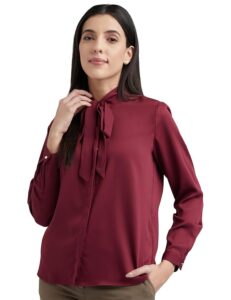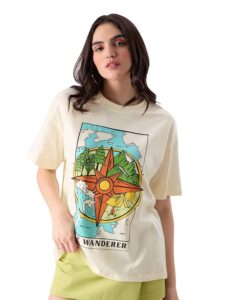 In today’s fast-paced fashion world, sustainability is more than just a buzzword; it’s becoming a central focus for many brands aiming to reduce their environmental impact. As consumers become more conscious of the effects of fast fashion, they’re turning to sustainable clothing brands that prioritize ethical practices, eco-friendly materials, and fair labor standards. In 2025, sustainable fashion is no longer a trend—it’s a movement.
In today’s fast-paced fashion world, sustainability is more than just a buzzword; it’s becoming a central focus for many brands aiming to reduce their environmental impact. As consumers become more conscious of the effects of fast fashion, they’re turning to sustainable clothing brands that prioritize ethical practices, eco-friendly materials, and fair labor standards. In 2025, sustainable fashion is no longer a trend—it’s a movement.
In this blog post, we’ll explore 10 fashion brands leading the way in sustainability in 2025, setting a benchmark for others to follow. These companies are proving that you can look good while doing good for the planet.
1. Patagonia
Sustainability Focus: Eco-friendly materials, Fair Trade practices, Circular economy.
Patagonia is often the first name that comes to mind when thinking of sustainable clothing brands. Known for its commitment to environmental activism, Patagonia uses recycled materials such as recycled wool, polyester, and nylon in its collections. The brand’s Worn Wear program encourages customers to repair, reuse, and recycle their clothes, which helps reduce waste. Patagonia also donates 1% of its sales to environmental causes.
In 2025, the brand has continued its journey by introducing cutting-edge, biodegradable fabrics and expanding its efforts to create a fully circular economy, where products are designed to be reused, repaired, or recycled.
2. Reformation
Sustainability Focus: Low-impact fabrics, carbon neutrality, ethical production.
Reformation is a shining example of how sustainable clothing brands can remain stylish and innovative. This Los Angeles-based label creates trendy, eco-conscious clothing using materials such as Tencel, organic cotton, and deadstock fabric. The company is carbon neutral, and it tracks its environmental impact with transparency, offering customers insights into the sustainability of each product.
In 2025, Reformation continues to make strides in reducing its carbon footprint, offering more sustainable options without sacrificing fashion-forward design. Their digital carbon calculator helps consumers make informed choices about their purchases.
3. Stella McCartney
Sustainability Focus: Vegan materials, circularity, sustainable sourcing.
Stella McCartney has long been a leader in the luxury fashion industry, blending style with sustainability. Known for her commitment to cruelty-free and eco-friendly practices, McCartney’s brand uses vegan leather, organic cotton, and sustainably sourced wool. Her “Material Innovation” program seeks to replace traditional textiles with plant-based and biodegradable alternatives. sustainable clothing brands
By 2025, Stella McCartney is pushing the envelope further by increasing the use of circular fashion techniques and launching collections that are fully traceable to ensure transparency in sourcing and production.
4. Everlane
Sustainability Focus: Transparency, ethical labor, recycled materials.
Everlane has made its name by offering minimalist, timeless clothing made from sustainable fabrics such as recycled polyester, organic cotton, and Tencel. The brand is dedicated to transparency, publishing detailed reports on the cost of production, material sourcing, and labor practices for each product it sells.
By 2025, Everlane has implemented more sustainable processes in its manufacturing, focusing on eliminating waste and reducing carbon emissions. Their new “Renew” collection features items made from recycled fabrics, further pushing the envelope in creating a zero-waste fashion line.
5. Allbirds
Sustainability Focus: Renewable materials, carbon neutrality, waste reduction.
Allbirds, primarily known for its eco-friendly footwear, has expanded into sustainable clothing brands. The brand uses natural, renewable materials like merino wool, eucalyptus tree fiber, and sugarcane to create its footwear and apparel. Allbirds continues to innovate with cutting-edge materials that are designed to have a minimal environmental impact.
By 2025, Allbirds has made further strides in reducing its carbon footprint, introducing more products with fully traceable sourcing and increasing its efforts to make its entire supply chain more sustainable.
6. People Tree
Sustainability Focus: Fair trade, organic cotton, ethical production.
As one of the pioneers in the fair trade movement, People Tree has been advocating for ethical production since its founding in 1991. The brand uses organic cotton, natural dyes, and locally sourced materials to create its clothing, while supporting fair wages and safe working conditions for artisans in developing countries.
By 2025, People Tree continues to innovate in sustainable clothing brands, expanding its collections with materials like hemp and bamboo, and working towards a fully transparent supply chain that connects consumers directly with the artisans who make their clothes.
7. Reebok
Sustainability Focus: Recycled materials, sustainable manufacturing, waste reduction.
Known for its athletic wear and footwear, Reebok has made significant strides in sustainability over the years. The brand has launched several initiatives aimed at reducing environmental impact, including its Cotton + Corn collection, which features shoes made from organic cotton and renewable materials like corn waste.
By 2025, Reebok’s sustainability efforts include a greater focus on the circular economy, with shoes designed to be recycled at the end of their life, and clothing collections made entirely from recycled polyester and other sustainable fabrics.
8. Pact
Sustainability Focus: Organic cotton, fair trade, carbon offsetting.
Pact is one of the go-to sustainable clothing brands for eco-conscious basics. This brand specializes in organic cotton clothing, offering everything from underwear to loungewear, while ensuring that all of its products are made under fair trade-certified conditions. Pact offsets its carbon emissions through certified climate projects, making it one of the most responsible brands in the industry.
By 2025, Pact has expanded its sustainable offerings to include even more eco-friendly materials and has become a top choice for those seeking high-quality, low-impact clothing.
9. Toms
Sustainability Focus: Vegan materials, recycled fabrics, charity initiatives.
Toms, originally known for its iconic shoes, has evolved into a full-fledged sustainable clothing brand. Their footwear and apparel collections now feature materials such as recycled polyester, organic cotton, and vegan leather. Toms is also committed to giving back: for every item purchased, the company supports humanitarian causes, including providing shoes to those in need.
In 2025, Toms has made further strides in its sustainability efforts, focusing on reducing its water usage and ensuring that all of its products are created using ethical practices.
10. Eileen Fisher
Sustainability Focus: Organic fabrics, recycled materials, circular fashion.
Eileen Fisher has long been a champion of sustainable clothing brands, offering collections made from organic cotton, wool, and linen. The brand has implemented a Take Back program, which encourages customers to return old pieces in exchange for store credit, and then the items are either resold or recycled into new pieces.
In 2025, Eileen Fisher has expanded its focus on circular fashion, using more recycled fibers in its collections and ensuring that all of its clothing is designed with longevity and sustainability in mind.
Read more:
Read More: 2025 fashion Trend
